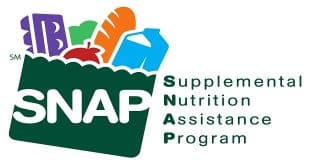WASHINGTON, DC – Indiana ranks among bottom half of all states for babies, according to a first-of-its kind report. The State of Babies Yearbook: 2019 compiles nearly 60 indicators that affect the well-being of children ages 0 to 3 and provides an in-depth look at national and state-by-state progress across three policy areas: Good Health, Strong Families, and Positive Early Learning Experiences. Researchers from the early childhood development nonprofit ZERO TO THREE and the non-partisan research organization Child Trends used these indicators to compare and rank states based on how they support the youngest in America.
Indiana was among 13 states across the United States and the District of Columbia to earn a ranking in the second-lowest tier out of four. However, the Yearbook highlights areas where Indiana still has room to improve to give the youngest Hoosiers—which make up 3.8 percent of the state population—the chance to thrive.
“Each of the 251,296 babies in Indiana was born with a bundle of unlimited potential and the first three years of their life will shape every year that follows,” said Myra Jones-Taylor, chief policy officer of ZERO TO THREE. “But far too many babies face persistent hardships—such as food insecurity, unstable housing, and exposure to violence—that undermine their ability to grow and thrive.”
The State of Babies Yearbook: 2019 reveals that the state where babies are born makes a difference in their chances for a strong start in life. Also, because of historical and structural inequalities, children of color are more likely to be poor, to be born too soon or too small, and to live in environments that challenge their families’ security. Not only is there wide variation between states on availability and access to policies and programs that support babies, there is also wide variation of outcomes affecting children’s development and well-being. This highlights the relationship between policy supports for babies and families and the chance to overcome adversity.
Indiana’s young children fare better than the national average in:
- Reading: 51.7 percent of parents in Indiana read to their baby every day, compared to the national average of 38.2 percent.
- Preventive medical care: 93.1 percent of babies in Indiana received preventive medical care, compared to the national average of 90.7 percent.
- Crowded housing: 10 percent of Indiana’s babies live in crowded housing, compared to the national average of 15.6 percent.
Indiana’s young children fare worse than the national average in:
- Uninsured rate: 8.3 percent of low-income infants and toddlers in Indiana are uninsured, compared to the national average of 5.8 percent.
- Adverse childhood experiences: 13.3 percent of babies in Indiana have faced two or more adverse childhood experiences, compared to the national average of 8.3 percent.
- Early Head Start: 5 percent of Indiana’s income-eligible infants and toddlers access Early Head Start, compared to the national average of 7 percent.
The State of Babies Yearbook uses a transparent ranking process to group states into one of four tiers to provide a snapshot of how states fare on the selected indicators and domains. These tiers represent four groupings of states that are approximately equal in size and ordered from highest to lowest performing. We use the following tiering symbols to designate a given state’s placement in one of the four tiers:
- “GROW” for Working Effectively
- “GRO” for Improving Outcomes
- “GR” for Reaching Forward
- “G” for Getting Started
| State | Overall ranking | Good Health | Strong Families | Positive Early Learning Experiences |
| Alabama | G | G | G | GR |
| Alaska | GRO | GR | G | GRO |
| Arizona | G | GR | G | G |
| Arkansas | G | G | G | G |
| California | GR | GROW | GRO | G |
| Colorado | GROW | GROW | GRO | GROW |
| Connecticut | GROW | GROW | GROW | GRO |
| Delaware | GROW | GR | GROW | GROW |
| District of Columbia | GRO | GRO | GROW | GRO |
| Florida | G | G | GR | G |
| Georgia | GR | GR | GR | GR |
| Hawaii | GRO | GROW | GRO | GR |
| Idaho | GR | GRO | GRO | G |
| Illinois | G | GR | GRO | G |
| Indiana | GR | GR | G | GRO |
| Iowa | GRO | GROW | GRO | GRO |
| Kansas | GR | GR | GRO | GR |
| Kentucky | G | G | GR | GRO |
| Louisiana | GR | G | G | GROW |
| Maine | GROW | GRO | GR | GROW |
| Maryland | GROW | GROW | GROW | GRO |
| Massachusetts | GROW | GROW | GROW | GROW |
| Michigan | GR | GR | G | GR |
| Minnesota | GROW | GROW | GROW | GR |
| Mississippi | G | G | GR | GR |
| Missouri | GRO | G | GROW | GR |
| Montana | GROW | GRO | GR | GROW |
| Nebraska | GRO | GR | GRO | GROW |
| Nevada | G | G | G | G |
| New Hampshire | GROW | GROW | GROW | GROW |
| New Jersey | GRO | GR | GROW | GRO |
| New Mexico | GRO | GR | G | GROW |
| New York | GR | GRO | G | GR |
| North Carolina | GRO | GRO | GR | GRO |
| North Dakota | GR | GR | GR | GRO |
| Ohio | GRO | GRO | GRO | GRO |
| Oklahoma | G | G | G | GRO |
| Oregon | GRO | GRO | GRO | GR |
| Pennsylvania | GRO | GRO | GRO | GRO |
| Rhode Island | GROW | GROW | GROW | GROW |
| South Carolina | GR | GR | GR | G |
| South Dakota | GRO | GRO | G | GROW |
| Tennessee | G | G | GR | G |
| Texas | G | G | GR | G |
| Utah | GR | GRO | GR | G |
| Vermont | GROW | GROW | GROW | GROW |
| Virginia | GR | GRO | GRO | G |
| Washington | GROW | GROW | GROW | GR |
| West Virginia | G | G | GR | GR |
| Wisconsin | GR | GRO | GRO | G |
| Wyoming | G | G | G | GR |
Access the national profile and state data at stateofbabies.org.
About ZERO TO THREE
ZERO TO THREE works to ensure all infants and toddlers benefit from the family and community connections critical to their well-being and development. Since 1977, the organization has advanced the proven power of nurturing relationships by transforming the science of early childhood into helpful resources, practical tools and responsive policies for millions of parents, professionals and policymakers. For more information, and to learn how to become a ZERO TO THREE member, please visit zerotothree.org, facebook.com/zerotothree, or follow @ZEROTOTHREE on Twitter.
About Think BabiesTM
ZERO TO THREE created the Think Babies campaign to make the potential of every baby a national priority. When we Think Babies and invest in infants, toddlers, and their families, we ensure a strong future for us all. Learn more at thinkbabies.org or follow @ZEROTOTHREE on Twitter.






